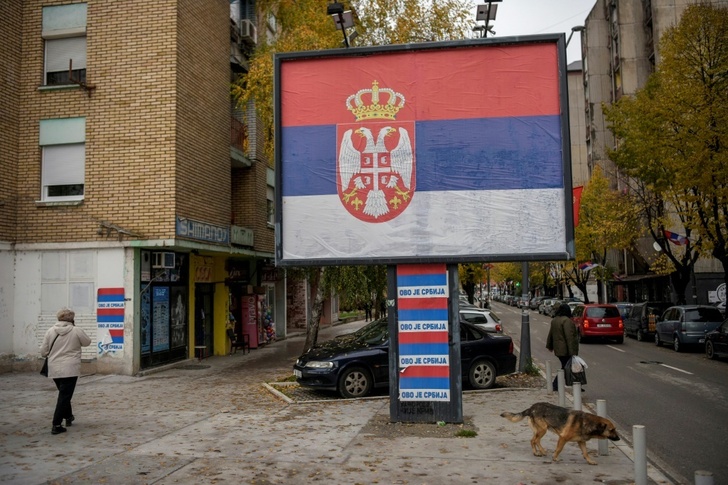Kosovo's prime minister, accused by Brussels of scuppering talks to resolve a row over a scheme to replace Serbian numberplates, said on Tuesday he had delayed the plan for two days.
The dispute erupted after Kosovo said the country's ethnic Serbs would be penalised if they did not swap vehicle licence plates issued by Serbia for registration numbers issued by Pristina.
The underlying source of tension is Kosovo's 2008 declaration of independence from Serbia. The latter does not recognise the move and has encouraged Kosovo's Serb minority to remain loyal to Belgrade.
Kosovar Prime Minister Albin Kurti said on Twitter early on Tuesday he had accepted a request from Washington "for a 48-hour postponement of the introduction of fines" for cars with Serbian plates.
The delay helped calm tensions in northern Kosovo, a day after EU-mediated negotiations between Belgrade and Pristina over the potentially explosive scheme failed to produce results.
"I am happy to work with the US and the EU to find a solution during the next two days," Kurti tweeted.
The dispute has sounded alarm bells in the European Union, which has been seeking to normalise ties between Serbia and Kosovo and wants both to refrain from provocative gestures.
The US ambassador to Kosovo, Jeffrey Hovenier, also voiced concern over the failure to resolve the number plate row, which has the potential to trigger a regional crisis.
In the latest development this month, Serbs in northern Kosovo resigned from public institutions in protest over the scheme.
Of Kosovo's 120,000-strong minority, around 10,000 have Serbia-issued car registrations.
- Cooling-off period -
Washington had requested the two-day delay "to allow the EU and the United States to further engage the parties to find a solution", Hovenier tweeted.
Police had been due to start issuing 150-euro ($154) fines to cars with Serbian plates from 8:00 am (0700 GMT) on Tuesday. A total ban is to come into force in April 2023.

Afterwards, Borrell said Vucic had been ready to accept an EU compromise proposal "that could have avoided this risky situation" but Kurti had not.
Returning to Belgrade, Vucic said the situation was on the "verge of conflict".
"There is an enormous anger among the Serbs in northern Kosovo," he said in a public address. He added he would ask the latter to "try to preserve peace".
Borrell urged Pristina not to implement its licence plate law and Belgrade not to issue new plates bearing Kosovar city initials. He said a cooling-off period would allow time and space for diplomacy to resume.
str-ih/ljv/gil
© Agence France-Presse
Your content is great. However, if any of the content contained herein violates any rights of yours, including those of copyright, please contact us immediately by e-mail at media[@]kissrpr.com.
Source: Story.KISSPR.com

